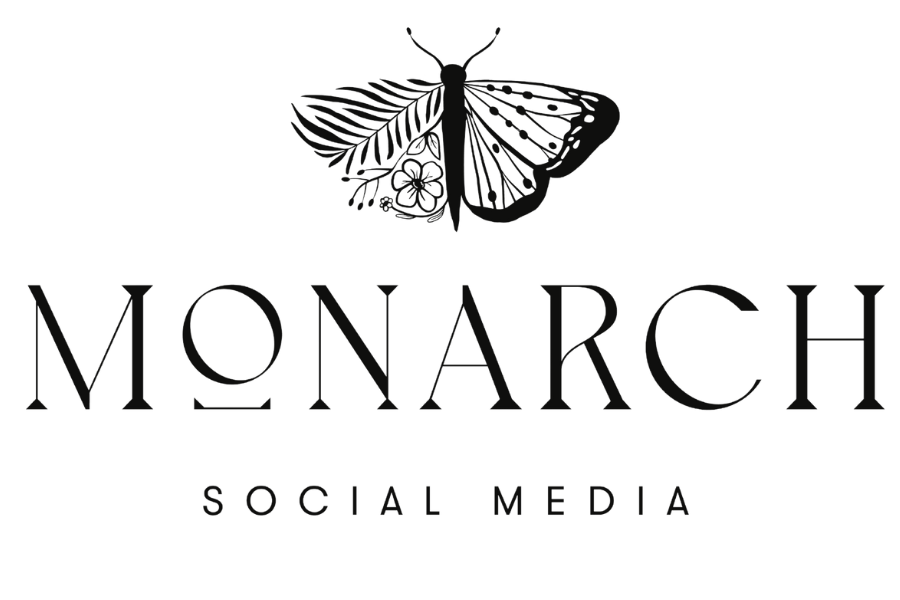You don’t need a huge following to land paid collabs, but you do need to meet the standards brands are really looking for.At Monarch, we work with creators every week, reviewing profiles, matching talent to brand campaigns, and coordinating UGC collaborations across...
Planning Social Media Content is Key to Success
If you’re a new social media manager or a small business owner doing social media management for yourself, planning social media content is the difference between panic posting and strategic success.
Having a backlog of content ready to publish will save you from not knowing what to post on a day when you’re not feeling particularly creative or need more time to create content. It helps you maintain frequency, which keeps your brand at the forefront of your community. It also allows the algorithms to understand what to expect from your account and feature your newest content accordingly. Frequent, predictable posting establishes rapport, encourages interaction, and keeps momentum and exposure high across your social channels.
It may seem time-consuming, but simple strategies can make the job easier. This article will share our top social media content planning tips.
Social Media Content Category Planning
Before you do anything, you need to decide what types of content you’ll post. A simple way to do this is to create content categories. We like to start with Social Media Awareness Days (SMADS) and Holidays. SMADS are specific calendar days designated to highlight a topic or cause on social media platforms. Make sure you’re choosing ones that align with your business. If you’re a law firm, it may not make sense for you to post about National Cheese Day. Make a list of the SMADs and Holidays you want to acknowledge to be used as placeholders in your content calendar.
The next category to focus on is education about the product or service you sell. A simple way to brainstorm ideas is to list questions that customers have already asked you. Sharing helpful, informative posts allows you to position your brand as a trusted source of knowledge on your topic or industry. People appreciate learning something new, so educational content keeps them engaged through likes, comments, and shares. It also encourages loyalty – readers will keep returning to your social profiles as a reliable source of information.
Social media users want to feel connected to the brands and businesses they buy from. Behind-the-scene content is an excellent way to create that human connection. Photos and videos of your products, team, events and process will keep people engaged. Stories content like day-in-the-life snapshots, project highlights, or sneak peeks help build relationships by giving audiences a more personal look into your business. You could show new product samples being tested, meetings with suppliers or clients, or progress on upcoming projects. Q&As with employees also offer some personality and expertise from different roles within the company.
User-generated content (UGC) is one of the best word-of-mouth marketing methods. A simple way to do this is to ask customers to tag and share posts using your business or products. It’s an easy way to show authentic social proof and perspectives that resonate strongly with other followers and potential clients.
Promotional categories are also important placeholders. Use social posts to announce special offers, sales, discounts, or time-limited deals that are running to drive traffic to your website or store.
There are many more content categories to explore, but these are the easy ones to start with. You can always expand your strategy later on.
Create a Social Media Content Calendar
Next, you need to set up a calendar. You can use a physical planning journal, Google Calendar, social media software, or spreadsheet. There are multiple ways to approach this, but having a calendar in front of you will make establishing frequency and content categories much more manageable. The key here is to see visually when content needs to be posted and what type it should be.
You’ll use the content categories that make sense for your brand as placeholders for what needs to be created. We suggest planning your content 1-3 months in advance.
Here’s what a one-month content calendar looks like for one of the brands we’re about to hard launch.

Your Social Media Planning is Complete, Now What?
With your content strategy and calendar mapped out, the fun begins – bringing your plan to life through content creation! All that planning makes creating the content more manageable, as you’ll have a clear direction for the types of assets to produce.
In our next article, we’ll explore tips for the content creation process. We’ll cover topics like brainstorming types of content, assigning creation responsibilities, optimizing posts for each channel, and testing different approaches. Your calendar provides the framework that can be used to guide the content creation on schedule.
Engaging, on-brand content flowing regularly from your accounts will increase engagement and visibility for your brand, and your community will appreciate the value and consistency that proper planning provides. Ready to create the content? Click here to learn how to build a social media content bank so content creation becomes easier.
Build a Brand With Us: Have You Really Optimized Your Social Media Profiles?
When most businesses think about “social media strategy,” they immediately jump to content. What to post, when to post, and how often. But here’s the thing: if your accounts aren’t optimized, your content won’t perform the way you want it to. Optimization is the...


